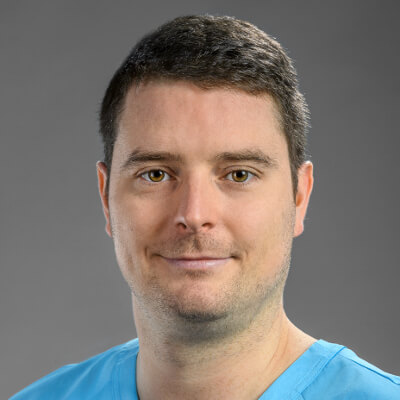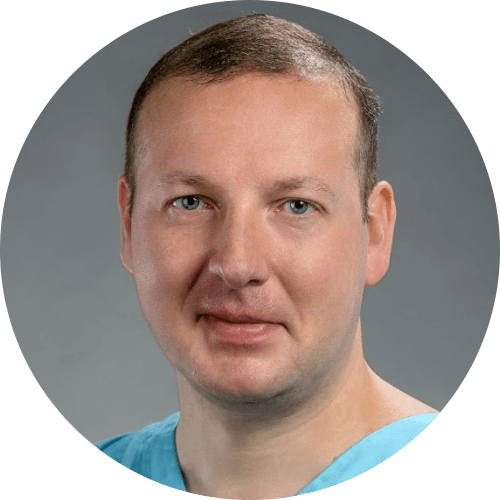Anesthesia
Local anesthesia
Many of us have anxiety when undergoing medical procedures and dental treatments are especially associated with feelings of discomfort and fear. We are programmed to evade feeling pain, so sometimes a bad experience from our past can (sadly) make us postpone or even avoid dental visits. Unfortunately, this will have a greater negative impact on our dental and general health on the long run. In our times, however we are very lucky to have many means to alleviate or even eliminate pain during dental interventions at our disposal.
The most common way to prevent or lessen pain in the areas where we need to have dental procedures, is “local anesthesia”. The term “local” is used because the effect of the anesthetic substance is limited to the area where it is administered. These substances will numb the area of interest through disconnecting sensory and / or motor transmission, so that the nerve is tricked into thinking nothing is being done in the area.
Administration is typically done via injection and we usually use a topical numbing agent before that (this may be either a gel or a spray). This additional step, together with the use of ultra-thin discard needles and a gentle hand, will ensure that most of the time, even the needle isn’t felt by the patient.
The dental procedures can be performed right away, as the anesthetic will work instantly. The length and strength of the anesthetic effect is experienced differently by every patient and varies with the substances used. Until the numbness is gone, some minor discomfort may occur, so we usually recommend to postpone the next meal. Speaking will also be somewhat affected by the anesthesia.

Conscious sedation
Sometimes we have patients who experience severe anxiety about the dental procedures they need to undergo. In most cases, they have always avoided or postponed the necessary treatments, which in turn might have led to even more serious complications.
Sedation or “sleep” dentistry was developed to help in this matter. An anesthesiologist uses medication that is administered intravenously, to help patients relax during the intervention. In addition, local anesthesia is also performed. Under conscious sedation, the patient will be cooperant and will undergo the entirety of the procedures without feeling any pain, their gagging reflex is reduced and there will be an increased tolerance for longer appointments.
Conscious sedation is not the same thing as general anesthesia, even though the patient will not remember much about the intervention.
How to prepare for conscious sedation:
- You will need the help of another adult (a responsible family member, loved one, friend etc.) who can accompany you to our clinic and remain there throughout your entire appointment. Your appointment will be canceled if you fail to bring someone with you who can do this.
- Before the procedure, you need to follow the general fasting rules for general anesthesia: do not eat for 6 hours before the intervention; drinking water is allowed up until 2 hours before.
- Do not consume alcohol for at least 24 hours before and after the procedure.
- Make a list of all the medication you are using and give it to your treating doctor.
- If you think you are pregnant, please notify us in advance.
- If you get the flu or become sick with something else, please notify us in advance.
- Do not bring your children with you, as the appointment might be longer.
- You will need to remain at the clinic for a while after the procedure is over, until you are perfectly lucid.
- The person who will accompany you will have to take you home. We recommend that someone remains with you at all times for 24 hours after your intervention.
- Do not drive, operate machinery or sign any legal documents for 24 hours after your intervention.

After conscious sedation:
You may feel a bit un-coordinated, sleepy or tired for a few hours after sedation. This is perfectly normal, but it is best that you go home and get some rest after the procedure.
If you would like to know more details about the procedure, the medication involved or about our anesthesiologists, feel free to visit their webpage here: http://www.audioanaesthesia.hu
DIAGNOSIS
PROPHILAXYS
DENTAL ESTHETICS
DENTAL PROSTHETICS
DENTAL SURGERY
PERIODONTOLOGY
For any questions or making an appointment, please get in touch
If you need an appointment please contact us.
Get to know us

Dr. Molnár Lehel Ferenc
Dentist & specialist in oral surgery

Dr. Alexandra Cristina Rus
Dentist

Dr. Molnár Szabolcs Mihály
Dentist

Dr. Huber Gergely
Orthodontist
Contact
If you have any questions or would like to make an appointment, do not hesitate to contact us!
Molnar Dental
Várkerület 43
H-9400 Sopron
Ungaria
Telefon
+43 (676) 699 77 35
+36 (30) 146 9080
info@molnardental.com
OPENING HOURS
| Mo: | 8:30-18:30 |
| Tu: | 8:30-18:30 |
| We: | 8:30-18:30 |
| Th: | 8:30-18:30 |
| Fr: | 8:30-18:30 |
| Sa: | 8:30-18:30 |
| Su: | closed |
Visit by prior appointment.
CONTACT
Address: Várkerület 43
9400 Sopron, Hungary
+43 (676) 699 77 35
+36 (30) 146 9080

